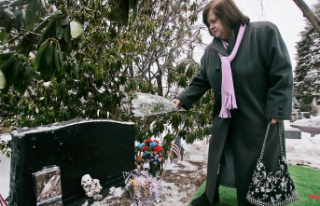Persistent staff shortages and the rapid increase in RSV infections are pushing children's intensive care units to their breaking point: According to a survey, there are currently no intensive care beds available. The situation is "catastrophic", and capacities are also dwindling in the normal wards.
Emergency physicians are sounding the alarm. The massive wave of infections in children and the massive shortage of staff are pushing pediatric intensive care medicine in Germany to the limit, as the German Interdisciplinary Association for Intensive Care and Emergency Medicine (DIVI) explained. According to a current DIVI clinic survey, on average there is no longer an intensive care bed available for critically ill children.
In the pediatric children's intensive care units, there are only 0.75 free beds per clinic, i.e. less than one per location. Of the 110 children's hospitals surveyed, 43 facilities had no free bed on the normal ward. Every second clinic has had to reject at least one child in the past 24 hours after being asked by the emergency services or the emergency room for pediatric intensive care.
"This is a catastrophic situation," said DIVI Secretary General and pediatric intensive care physician Florian Hoffmann at the DIVI Congress in Hamburg. "That's why we demand the immediate optimization of working conditions in the children's hospitals, the establishment of telemedical networks between the pediatric facilities and the establishment of specialized children's intensive care transport systems. We must finally act now." More and more children have to be transported, sometimes over long distances.
The main reason for the misery is the ongoing shortage of staff. In the 110 clinics surveyed, only 367 of a total of 607 adjustable beds could be operated. "We have a critical nursing shortage that is leading to a dramatic reduction in operable beds." But the massive wave of illnesses caused by respiratory infections is also putting a strain on the clinics.
According to the Robert Koch Institute, the number of acute respiratory diseases in Germany has recently increased significantly. In particular, an infection with the respiratory syncytial virus (RSV) recently brought more and more small patients to the hospitals. "The RSV wave continues to build up and makes treatment with respiratory support necessary for many children. We can - as of today - assume that there are not enough children's intensive care beds for this treatment," said DIVI Congress President Sebastian Brenner von the University Children's Hospital Dresden.












